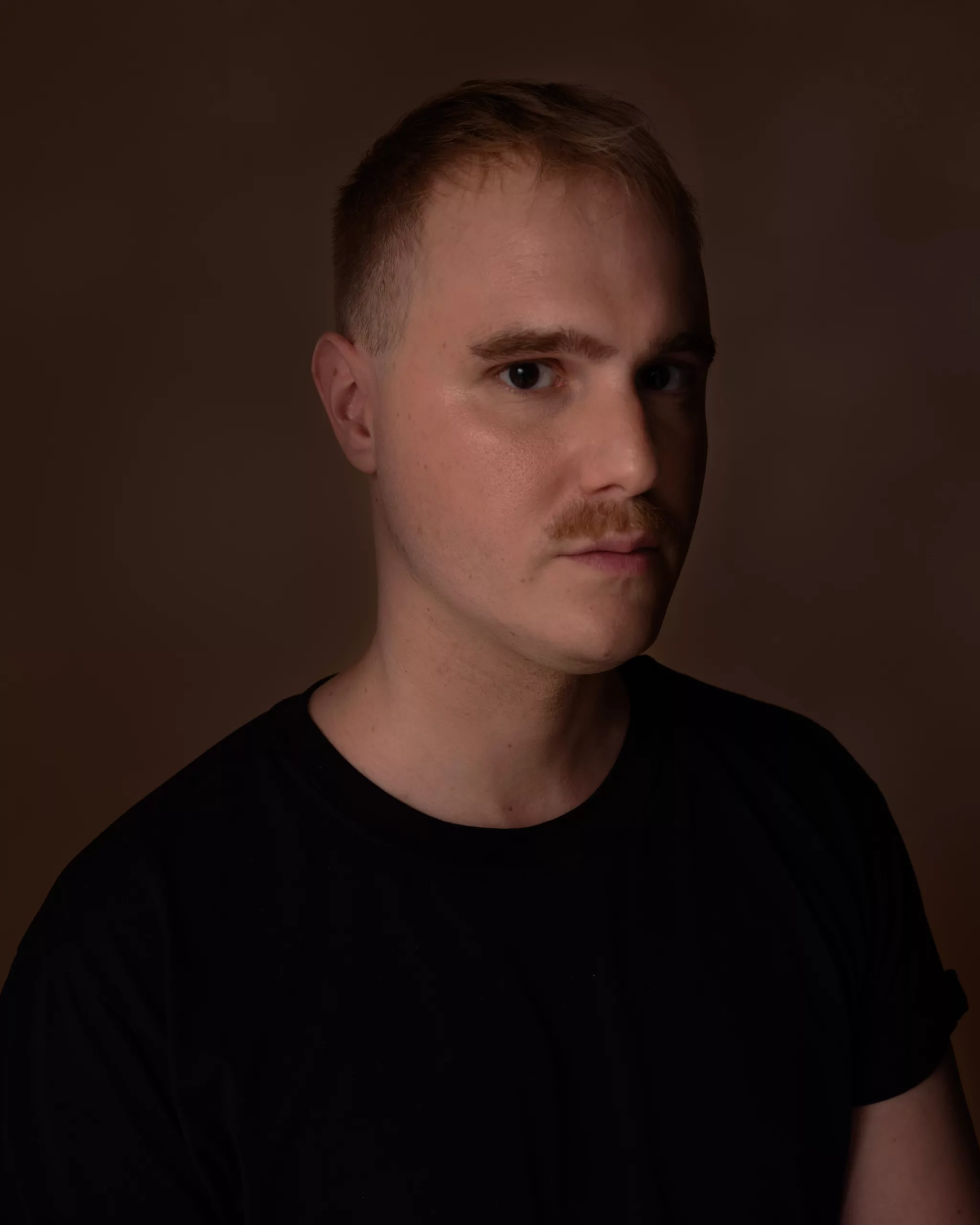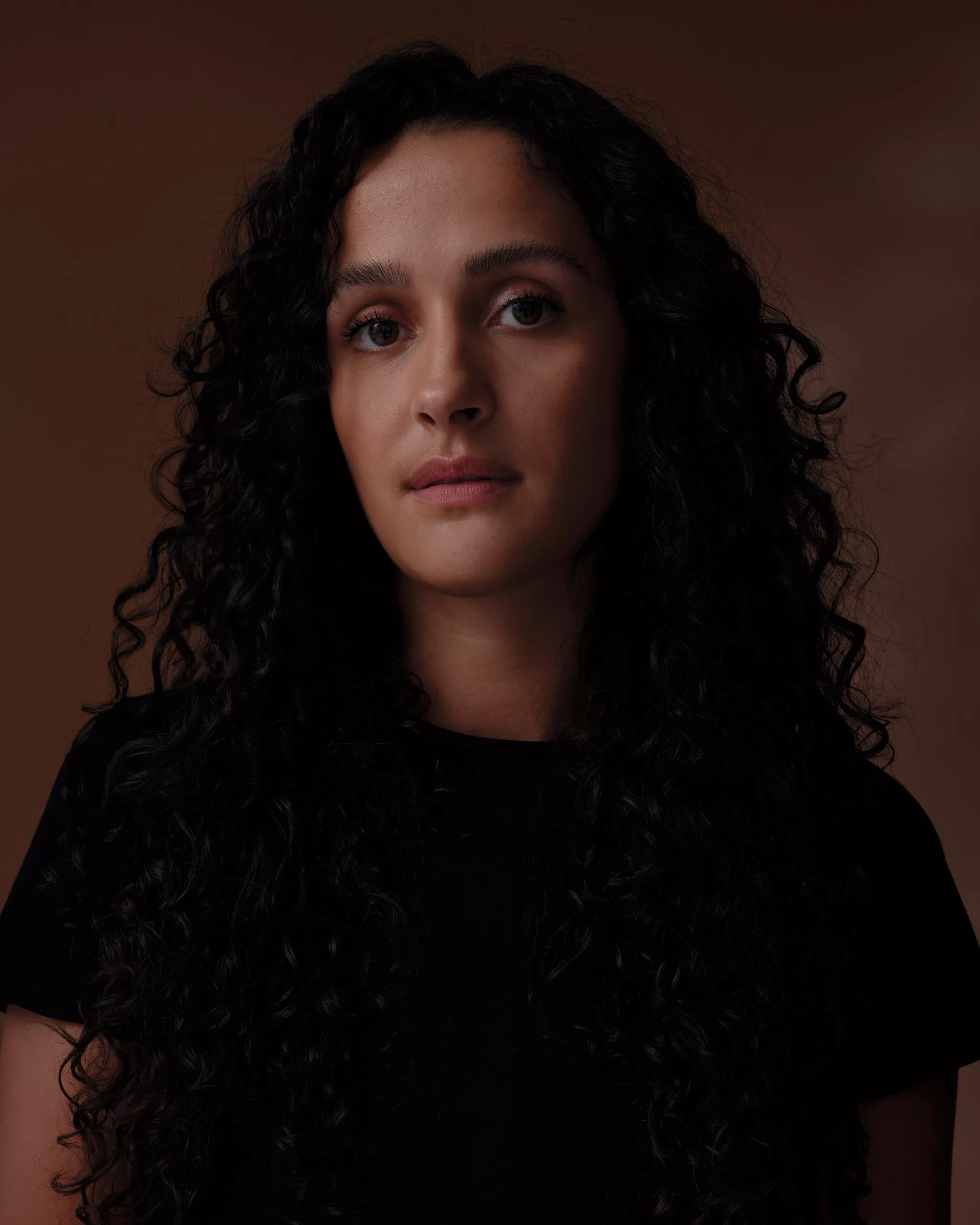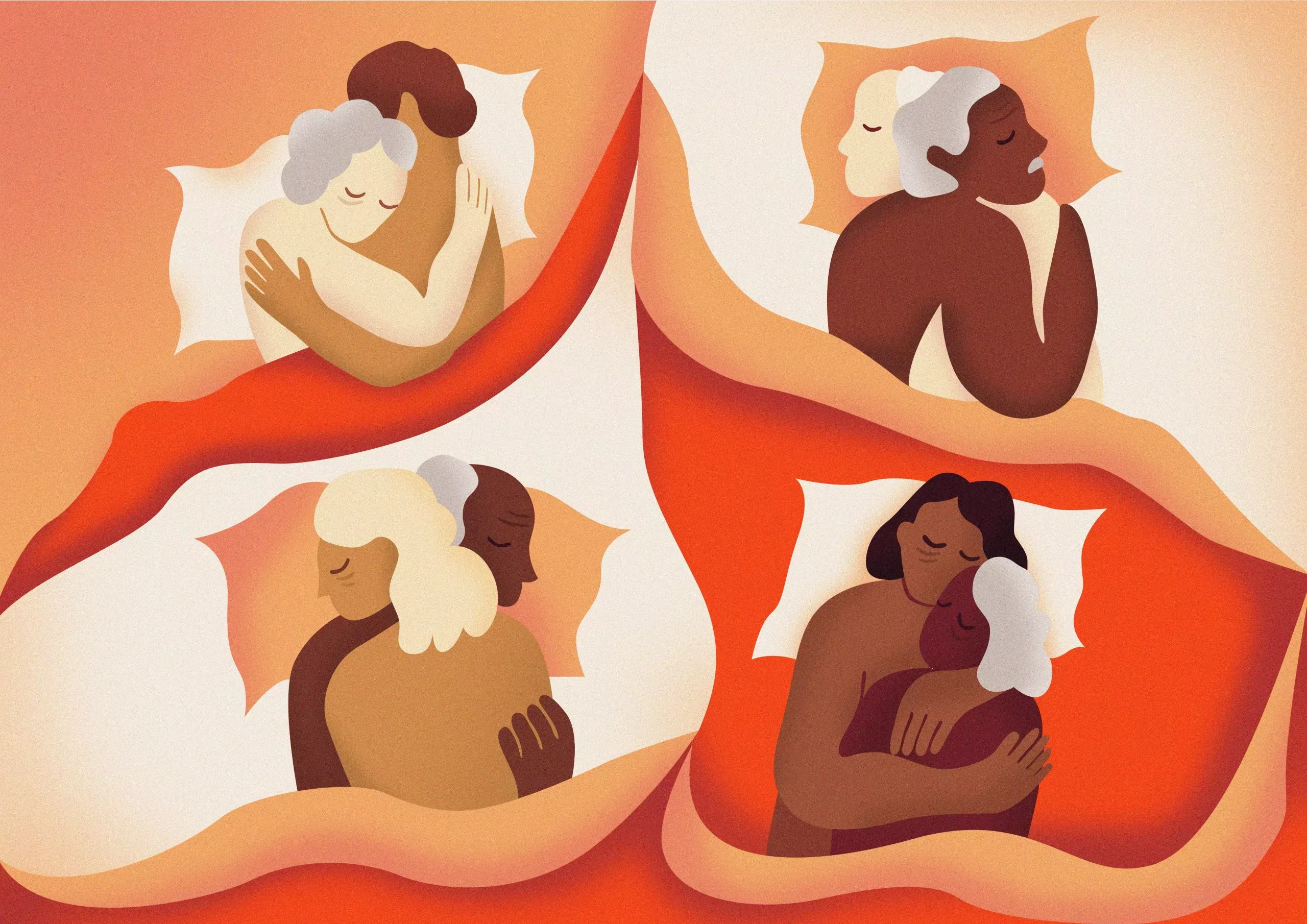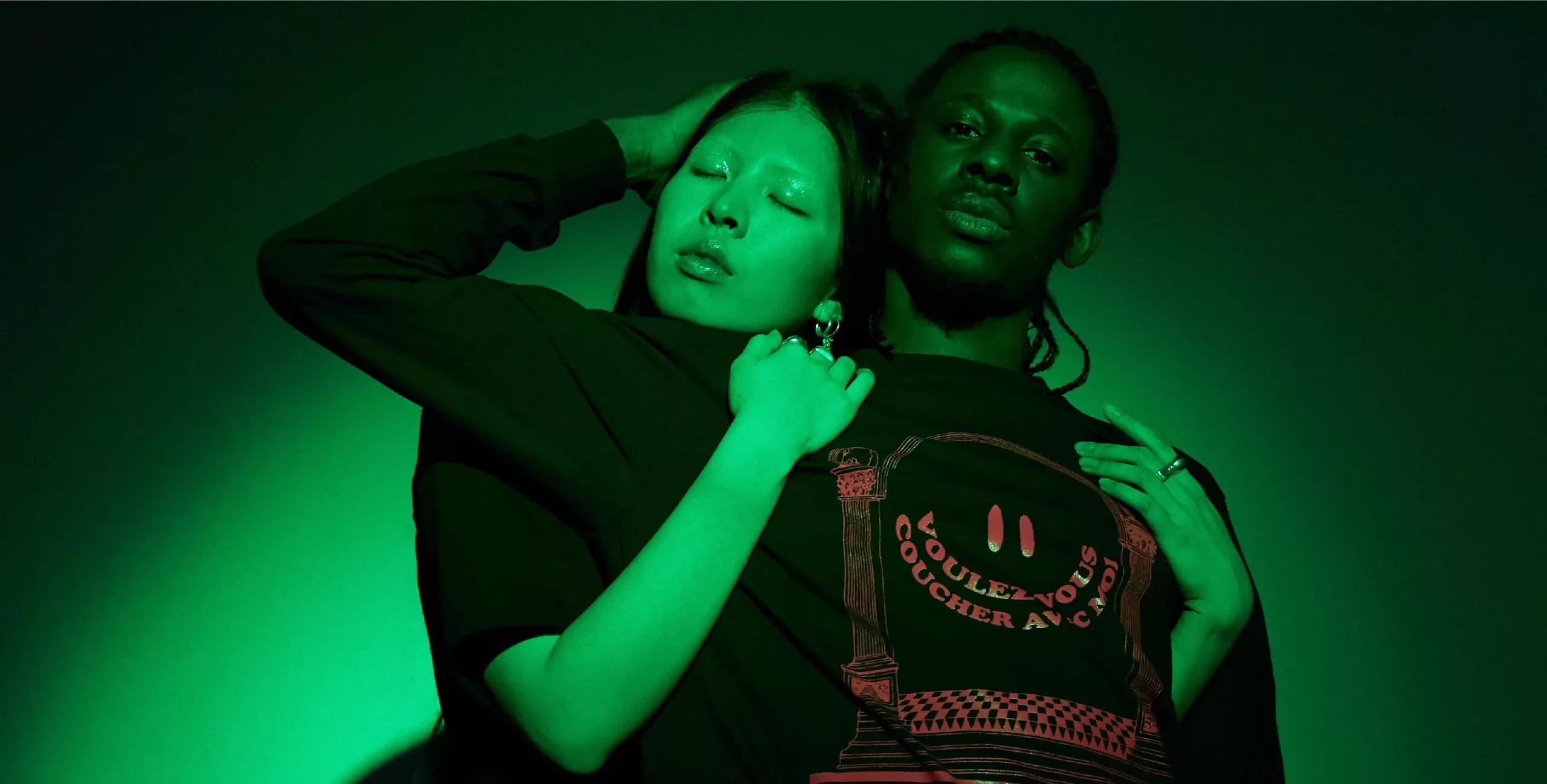Your cart is currently empty!
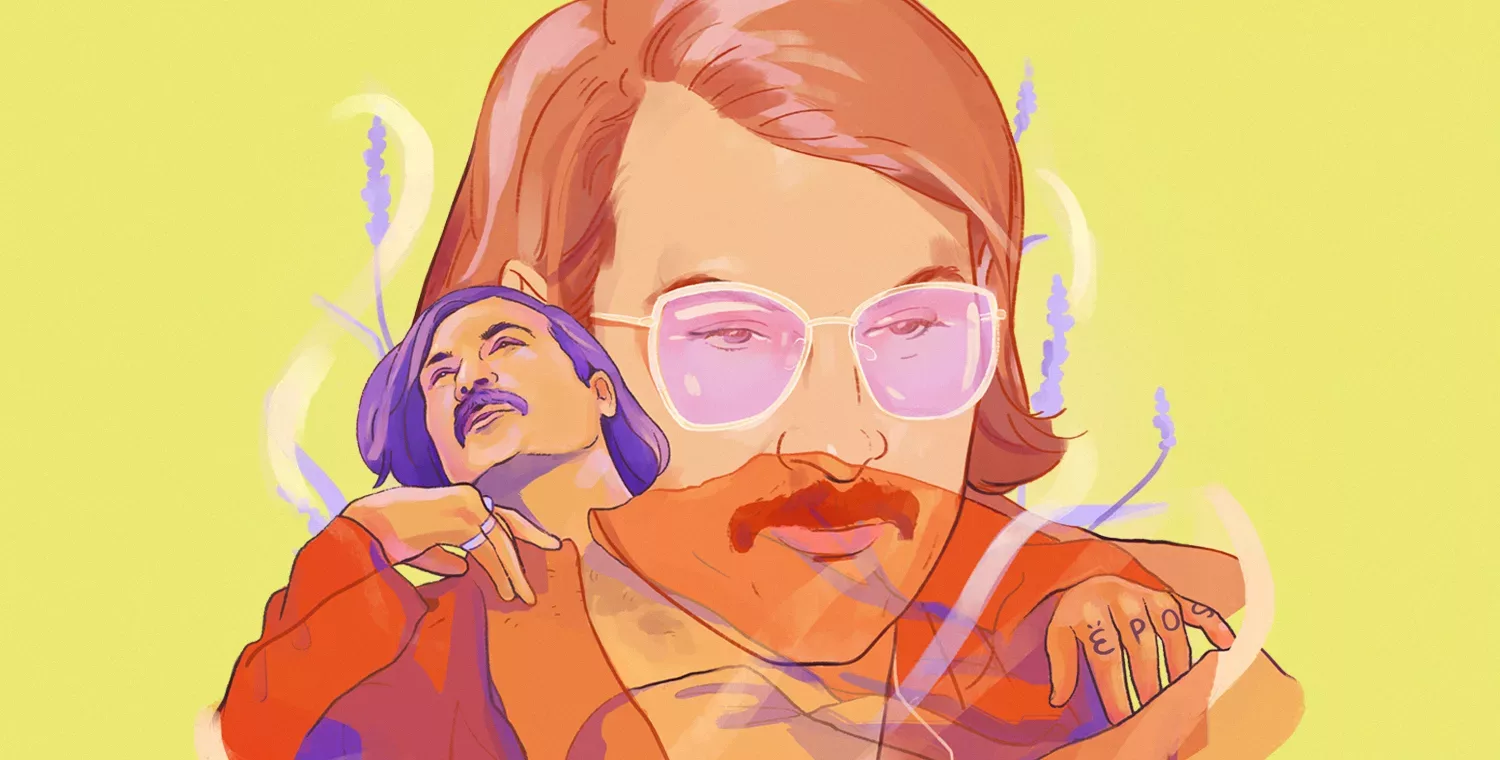
All You Need is Love and Salad: Interview with Carla Blanc
Club Sexu sits down with Charles Lavoie to discuss his new solo project, Carla Blanc. His debut album, WONDERFUL, was released last fall. Charles was previously known for his involvement with the Montreal trio Dear Criminals. We talk about eros, identity, and gourmet salad.
JUSTIN : Hi Charles! First off, major kudos for your album WONDERFUL. I’ve been listening to it on repeat for several weeks: in the bath, on the street, in bed, with or without socks on. It makes me very, very excited for summer. How are you?
CARLA : Thank you, it’s always nice to hear. I’m doing great! I walked from Villeray to Laurier Park while listening to a movie soundtrack for my new Club Sexu playlist.
JUSTIN : You often talk about Carla Blanc as your alter ego. As you’ve already said in the past, the name comes from “Karl”, a name with Germanic roots meaning “virility”, and “Blanc”, the family name of Erika Blanc, an actress who became iconic thanks to her main role in the Italian film Moi, Emmanuelle (a film adapted from the erotic novel by Emmanuelle Arsan). Carla is therefore a character who defies gender, or who at least combines masculinity and femininity into a single entity. Almost half a year after the release of your album WONDERFUL, do you feel more reconciled with your feminine side?
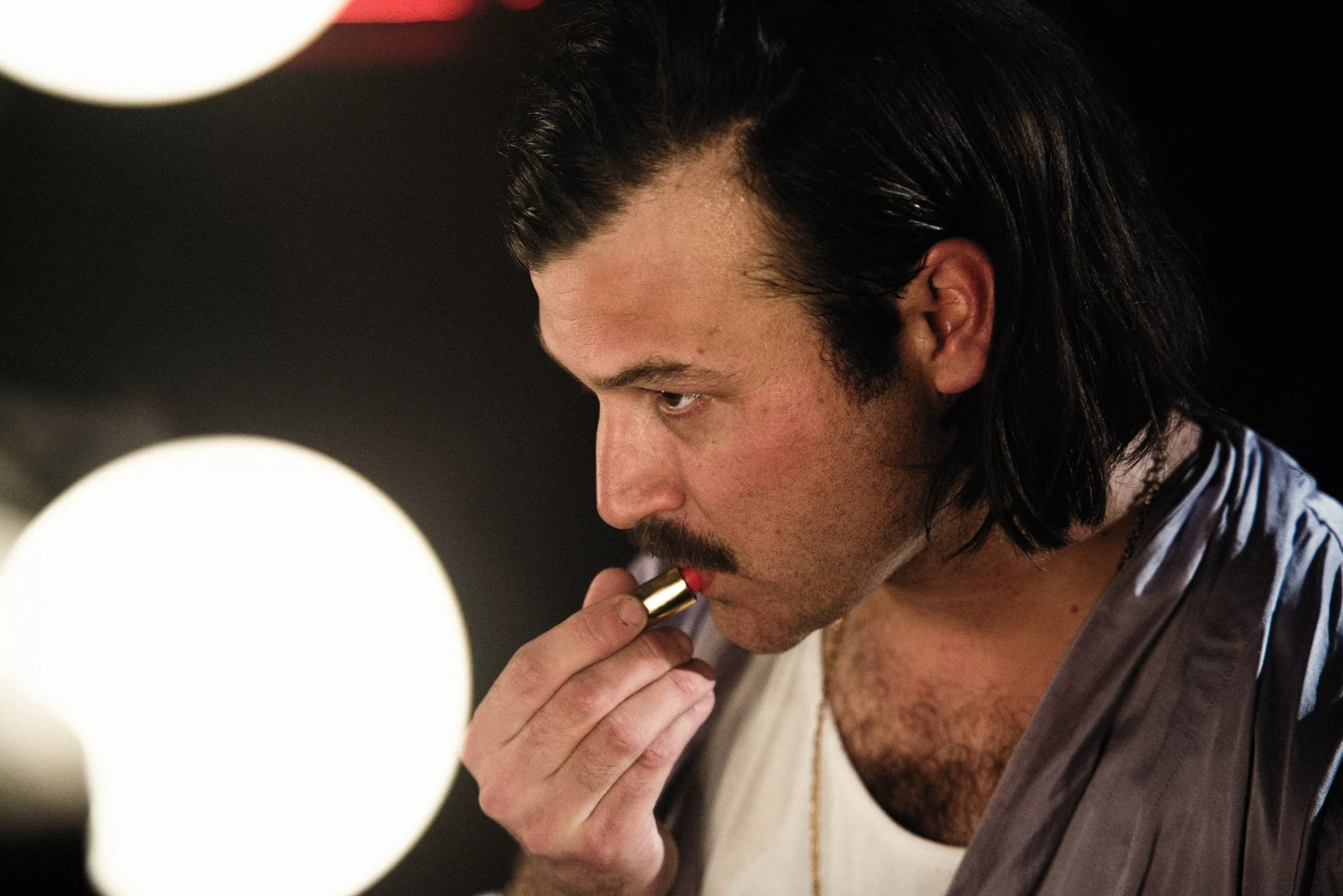
CARLA : I wouldn’t describe it in terms of “reconciliation”, as it would mean that I already had femininity inside of me. I want to move away from the ancient cliché that man has woman in him. I see it more as a quest, a search for complexity, greater poetry, a different perspective, perhaps also greater intimacy.
So it’s more the beginning of a quest than a “reconciliation”. Is that where it begins? No, I don’t think so. And where does it end? I don’t know. But this idea of searching for something inside oneself—something within—is important. And above all, I don’t assume to know what the female gaze is (what is femininity, even?). No, I can only hope to open myself to it!
JUSTIN : Can you tell me a bit about Carla? Do you feel split in two or, rather, do you feel more powerful or more complete when you embody this character?
CARLA : More complete? Maybe. Creating a character… I’m not sure I’d describe it like that. If we look up its etymology, then we’re talking about a persona or a social mask, but I don’t see myself as hiding behind a mask. I rather think that it’s all part of me, of who I am.
Going back to the concept of reconciliation, I may have reconciled with a part of myself, with a mask forged by society that dictates how to be a man in a patriarchal society.
This character allows me to start anew, like when you create a movie character: it’s a blank page on which I can create new benchmarks that are not imposed by the outside world. A part of the show I’m working on was inspired by my childhood. When I was little, I liked to put on lipstick and my mother’s dresses. She was my favourite costume artist. But I put that stuff aside when I started playing hockey with the boys, [laughter]! I didn’t know what I had to prove, but I had to evolve according to people’s expectations.
JUSTIN : You say that, through Carla, you were on a quest to find and explore the femininity marginalized by the toxic masculinity many of us have internalized. You were thirsty for empathy, sensitivity, and gentleness. We feel it in your latest music video, DCSLN, where you explore a part of femininity through movement, sensations, costumes, and make-up. My question for you is: how do we explore this femininity? And what can identity fluidity do for us?
CARLA : I still have a very superficial relationship with that… but hey, I’m diving in anyway! First, I want to clarify that I don’t believe it’s enough to put on lipstick and give yourself a female name to be able to speak on behalf of women. But how do we explore our own femininity? How we explore anything: with curiosity! Through play, too. By allowing ourselves to be open to different perspectives, to read, consume—in my case, art and literature by women—to listen to the women around us and to give them a voice. And by always asking yourself: what do the people concerned—women, in this case—have to say? What does a given issue mean to them?
JUSTIN : In an interview with La Presse, you talked a lot about how you believe we should all reclaim eros in our lives. First, can you define what “eros” means to you? What does it embody, exactly? It’s such an old, outdated term we don’t hear much anymore. I’d love to know what sort of meaning it has for you.
CARLA : Yeah, it’s very timeworn… [Carla hesitates, then shows their knuckles with the word “eros” tattooed across them in ancient Greek]. The power of eros! It’s heavy, but I want to go back to the Greeks, for whom eros meant desire—a loving desire that embodied a desire to love, a form of commitment to love, but not just relationally. A mystical love of knowledge—of oneself, of the other—a desire to learn that requires time and commitment. It’s unlike the Roman cupid with his arrow—bam, and done. There’s more action and commitment in the Greek concept of eros, especially since it proposes that we unify rather than divide; that we depolarize how we see the world. Obviously, doing that is infinitely complex.
I think that, with any form of knowledge or learning, we are inhabited by commitment—eros. Learning, love, and commitment take time. So yeah, eros makes us relate to time better.
JUSTIN : Where do you think eros went? Why did we lose it? Where has it gone? When eros is gone, where does it go?
CARLA : I don’t want to get into capitalism and productivity, but I think it’s necessary if we want to move forward on this. [Pause]. Hey, you know what? I want to make an analogy. I was at the grocery store earlier, and I saw a ready-made “gourmet salad” in a large plastic container. The kind of salad that looks crazy delicious, but when you crack it open, it turns out to be stale, bland and… unappealing. We talk a lot about food porn, you know? Everything is porn anyway nowadays—bam! In your face, ready to be consumed. Eros, for me, refers to the distinction between eroticism and porn. You made your salad from scratch, grew the lettuce from seed, watched the sprouts grow, harvested the lettuce, selected an oil out of several that you have tasted. You take the time to make a great salad!

JUSTIN : How does your music project, Carla Blanc, contribute to reinjecting eros into our lives? Beyond, of course, its sensual notes, its warm and titillating rhythm, its juicy lyrics whispered in the hollow of people’s ears?
CARLA : I don’t really claim it adds more. But y’know, I hope that people desire each other and experience moments of love or passion while listening to my music. But in the end, it’s not for me to judge, and it’s weird when I think about it. But in the process… this project involved a lot of love! It involved working with collaborators that I love. It was smoothly done. I started in one direction, it eventually became something else, my perspective sharpened, and each song has its own story. But yeah, I’m not presumptuous to the point of claiming that it will “add eros” to people’s lives…
JUSTIN : But it was accomplished with eros!
CARLA : Oh yes, 100%! What is said and is described is true, thought, felt, adored.
JUSTIN : Yeah, we feel it; the album is super authentic! If WONDERFUL was a salad, it would be a good organic salad, with good oil!
CARLA : [Laughter] Not too much oily and salty dressing. And above all, please no gluten. It makes me bloated.
JUSTIN : There are still some fatty avocados, though!
CARLA : Yeah! [Laughter] But yes, even in the arrangements, we were careful with our choices so as not to shove everything in the listeners’ faces. Also, we worked around the themes and were less interested in “verse, chorus, verse, chorus” constructions. It’s a rather slow, tortuous album when you think about it.
JUSTIN : After watching your two music videos, both made with Charlotte Aubin and Fanny Forest, I couldn’t help but notice something of a female gaze. As if the camera was discovering the bodies through a new perspective, which moves away from porn-like fetishization and takes into account the fluidity of desire. Your music video “Emmanuelle” is even an allegory of the female orgasm, luminous and comforting, that goes against the grain of our societies’ pornographic pace.
CARLA : Strangely, it was hard to do the video for “Emmanuelle”. We had a lot of shots, we really leaned towards editing it into a music video, and we even realized that there was a way of editing it that would make it pornographic, so to speak, to make it sell! You know, to make it more “in your face”! We had shots of Charlotte that were more carnal, more sexual. But no, we wanted to find a sweet spot where we took our time, and in the end we did what, three, four shots? But that was what we wanted to get!
JUSTIN : How would you describe the female gaze? What does it involve?
CARLA : Well… once again, it’s hard. I’m not a woman. I don’t want to speak on behalf of women.
Is the female gaze the inversion of a paradigm? Do we think of it in the negative? What would NOT be a male gaze? These are questions to ask ourselves. But I think we’re on the right track by making space for women to speak… by letting them translate their gaze into art. I think films like Céline Sciamma’s Portrait of a Lady on Fire addresses things like that. But just because a woman makes a film does not mean that she’s portraying the female gaze! She could very well be reproducing the male gaze.
JUSTIN : Do you think the female gaze is increasingly present in music?
CARLA : For sure. There’s a rise in music that’s increasingly sensitive to that, and it is not new. But y’know, in music, we have small victories, as more and more female producers, mixers, technicians… more and more women are present at each stage of the chain. But I think these things are really important in the end, for sure.
You know… I’m far from being a saint. I had children very early and I realized that inequality did exist in our family.
This pressure on women, this mental load that we often talk about, is real and it isn’t easy to get rid of. I feel like I’m still learning. How do you become more empathetic? How to be a man, a father? And I’m not virtue signaling, here.
JUSTIN : Maybe not, but it is a good thing to become aware of those things and to talk about them.
CARLA : [Laughter] But I can be clumsy, sometimes! And I wanted to show that clumsiness. I wanted to talk about eroticism and sexuality, without ever talking about tits and ass, to evoke it poetically and metaphorically, with a touch of my own vulnerability.
JUSTIN : We really sense this vulnerability in the album! Really. [Pause] Now, let’s end with… A SEX QUESTION! Do you prefer having sex with or without music on?
CARLA : Umm… It depends so much on the context!
JUSTIN : Ok, ok! But, say, to the sound of which artist?
CARLA : Oh… I would say the prize goes to Frank Ocean. Suave, sensual vibes. Nothing with long epic solos, pleeease.
JUSTIN : So not Stairway to Heaven…
CARLA : Haha, no! And in any case, especially not Carla Blanc!
JUSTIN : That would be a bit weird, yes. [Laughter] Thank you Charles, we wish you a lot of success with Carla Blanc and we can’t wait to hear what you have in store for us in the future!
To learn more about the Carla Blanc music project, check out its website.
-
Côté, É. (2020, 8 September) Carla Blanc: pour un retour de l’éros dans nos vies. La Presse. https://www.lapresse.ca/arts/musique/2020-09-08/carla-blanc-pour-un-retour-de-l-eros-dans-nos-vies.php
Sciamma, C. (Director). (2019). Portrait de la jeune fille en feu [Portrait of a Lady on Fire [Film]. Lilies Films.
Barker, M. (2013). Reflections: Towards a mindful sexual and relationship therapy. Sexual and Relationship Therapy, 28, 147–153.
Cooper, B. (2000). “Chick flicks” as feminist texts: The appropriation of the male gaze in Thelma & Louise. Women’s Studies in Communication, 23(3), 277–306.
Foley, S., Kope, S. A., & Sugrue, D. P. (2011). Sex matters for women: A complete guide to taking care of your sexual self. Guilford Press.
Gamman, L. (1989). Watching the detectives: The enigma of the female gaze. In L. Gamman & M. Marshment (Eds.), The female gaze: Women as viewers of popular culture (pp. 8–26). Real Comet Press.
Haraway, D. (1988). Situated knowledges: The science question in feminism and the privilege of partial perspective. Feminist Studies, 14(3), 575–599.
Kleinplatz, P. J., Paradis, N., Charest, M., Lawless, S., Neufeld, M., Neufeld, R., … & Rosen, L. (2018). From sexual desire discrepancies to desirable sex: Creating the optimal connection. Journal of Sex & Marital Therapy, 44(5), 438–449.
